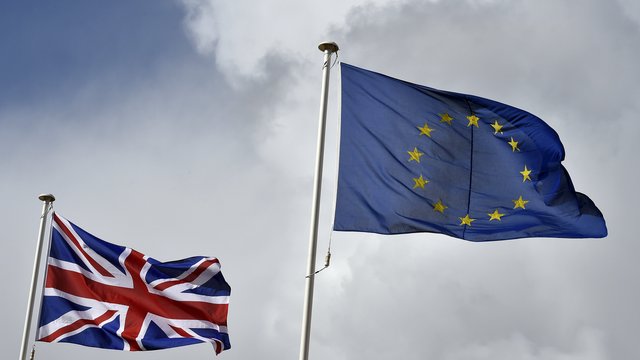Government Goes To Supreme Court To Overturn Brexit Ruling
5 December 2016, 07:06 | Updated: 5 December 2016, 07:08

The Government goes to the Supreme Court today in the latest stage of the legal battle over Brexit.
The highest court in the land is being asked to overturn a High Court ruling that the Prime Minister must seek MPs' approval to trigger the process of taking Britain out of the European Union.
In a decision that infuriated Brexiteers, three senior judges said Theresa May lacked power to use the royal prerogative to trigger Article 50 of the Lisbon Treaty and start the two-year process of negotiating Brexit without the prior authority of Parliament.
Now 11 Supreme Court justices - a record number to sit on an appeal - will have their say regarding one of the most important constitutional cases in generations.
If the appeal is unsuccessful, and any potential further appeal to the European Court of Justice in Luxembourg also fails, the Government's plans for Brexit could be thrown into disarray.
But Mrs May has made it clear she still intends to give an Article 50 notification by the end of next March to start the leave negotiations with 27 other EU countries.
Brexit Secretary David Davis is leading the Government's historic legal action. His team of lawyers, headed by Attorney General Jeremy Wright, will argue in the four-day Supreme Court hearing that the three High Court judges erred over Article 50 and its use was legally justified by the June 23 referendum vote in favour of quitting the EU.
Lord Thomas, the Lord Chief Justice, gave the ruling blocking the use of Article 50. Two other top judges - Master of the Rolls Sir Terence Etherton and Lord Justice Sales - agreed.
Even though it was emphasised to a packed court in London that they were deciding ''a pure question of law'' and not expressing any view about the merits of leaving the European Union, they faced fierce criticism from Leave campaigners and an accusation that they were ''enemies of the people''.
Against that background, the Supreme Court has already stressed that its judges will only be concerned with questions of law and not making political decisions.
The Scottish and Welsh governments and the Attorney General for Northern Ireland are all intervening in the case.
Scotland's Lord Advocate James Wolffe QC is to argue that it would be unlawful for the Article 50 process to start without a legislative consent motion (LCM) from Holyrood.
The High Court ruling was won by Gina Miller, 51, an investment fund manager and philanthropist who was selected to bring the lead case.
She reported that her high-profile role had led to death threats and she had spent £60,000 on security, but she is returning to the battle represented once more by Lord Pannick QC.
Her case is being supported by ''concerned citizens'' drawn from all walks of life, including London hairdresser Deir Dos Santos, 37, who helped start the legal battle over Brexit but, say his lawyers, has been forced underground after receiving ''vile'' hate mail.
The Attorney General said: ''The country voted to leave the European Union in a referendum provided for by an Act of Parliament.
''The Government is determined to respect the result of the referendum. The Government's case is that it does have legal power to trigger Article 50 on the timetable set out by the Prime Minister. We do not believe another Act of Parliament is necessary.''
Counsel General for Wales Mick Antoniw said: ''The people of the UK voted to leave the European Union. I respect that decision and we will not work against the referendum result.''
He said: ''Leaving the EU will lead to significant changes to the devolution settlement in Wales - only the UK Parliament can make those changes, which should be with the agreement of the National Assembly for Wales.''
The Welsh Government's legal team ''will argue that the judgment of the High Court should be upheld, and that an Act of Parliament is required for the UK Government to give notice under Article 50''.






